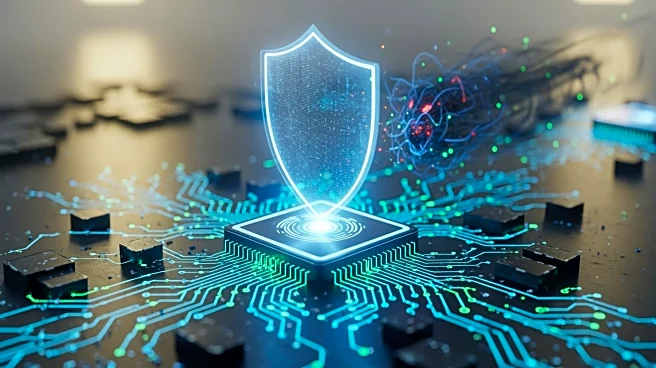What's Happening?
F5 Networks, a Seattle-based maker of networking software, has revealed a significant cyberattack attributed to a sophisticated nation-state actor. The breach involved the theft of proprietary source code
and vulnerability data related to F5's BIG-IP server appliances, which are used by 48 of the world's top 50 corporations. The U.S. Cybersecurity and Infrastructure Security Agency has issued warnings to federal agencies, highlighting an 'imminent threat' due to the thefts, which pose an unacceptable risk. The hackers reportedly had long-term access to F5's network, allowing them to control the segment used for creating and distributing updates.
Why It's Important?
The breach of F5 Networks has far-reaching implications for U.S. national security and corporate integrity. The stolen data could enable hackers to exploit vulnerabilities in critical infrastructure and sensitive networks, potentially leading to supply-chain attacks. This incident underscores the persistent threat posed by nation-state actors targeting major software companies, emphasizing the need for enhanced cybersecurity measures. Federal agencies and Fortune 500 companies are particularly at risk, as the compromised data could be used to infiltrate their systems, leading to potential data breaches and operational disruptions.
What's Next?
In response to the breach, federal agencies are expected to take emergency actions to mitigate the risks posed by the stolen data. This may include patching vulnerabilities, enhancing network security protocols, and conducting thorough audits of their systems. The incident is likely to prompt discussions on improving cybersecurity frameworks and collaboration between government and private sectors to prevent future attacks. Additionally, F5 Networks may face scrutiny over its security practices and could be required to implement more robust measures to protect its network and customer data.
Beyond the Headlines
The breach raises ethical and legal questions regarding the responsibility of software companies in safeguarding sensitive data. It also highlights the growing challenge of defending against sophisticated cyber threats in an increasingly interconnected world. The incident may lead to long-term shifts in cybersecurity policies and practices, as stakeholders seek to address vulnerabilities in supply chains and improve resilience against nation-state attacks.









